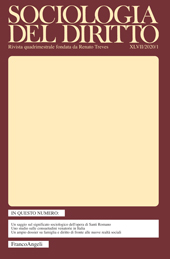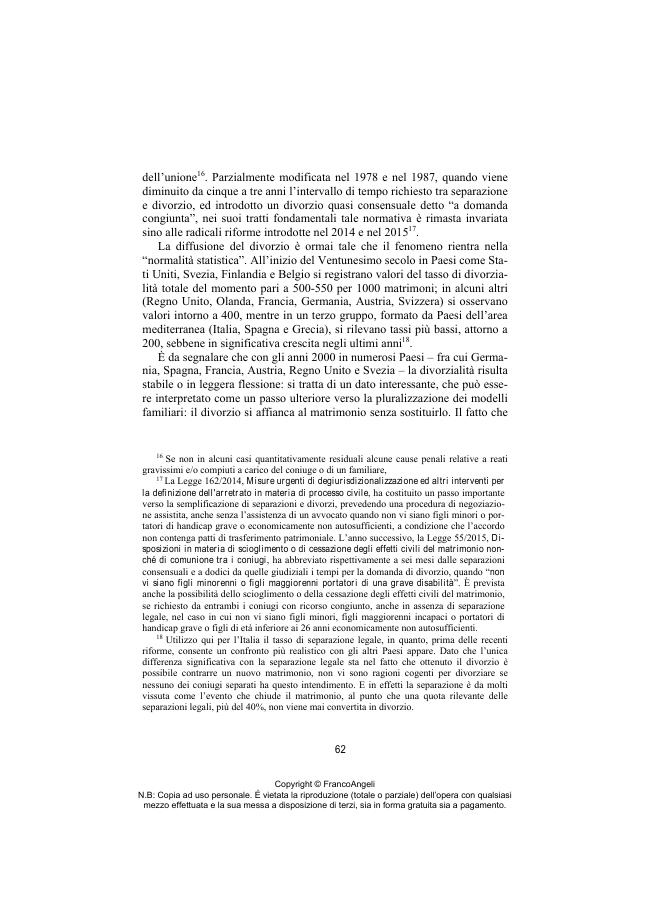I comportamenti familiari e riproduttivi in un tempo di cambiamento sociale, culturale e giuridico
48-75 p.
Since the mid-1960s, in the brief span of a couple of decades, a progressive weakening of the marriage institution as the structuring element of the family has come about. With fewer, later marriages, more fragile as divorces rapidly increased, and with the normalization of less stable forms of cohabitation, the very conditions of family life have been transformed in a large area, covering Western Europe, North America and other parts of the "developed" world. The number of births outside marriage has noticeably risen, and at the same time, there has been a drastic falling birth rate, all the more significant as it occurred in countries with already low or moderate fertility levels, if seen on a global scale.
Almost directly connected to these phenomena, the number of second (or subsequent) unions, divorced and "single" persons, and those who, more or less voluntarily, will not have children in the course of their life has increased. These are changes of fundamental importance from the point of view of both society and the individual, because they deeply affect people's lives. Studying those transformations assumes a particular interest for the sociology of law as the evolution of behaviour has been intertwined with legal changes, both in jurisprudential orientations and in the legislation. After a stagnation in the family law, which sometimes lasted more of a century, in the space of a few decades radical reforms were introduced in all the Western countries, which profoundly changed the legal context of family relations and reproductive behaviours. [Publisher's text].
Fait partie de
Sociologia del diritto : 1, 2020-
Articles du même numéro (disponibles individuellement)
-
Informations
Code DOI : 10.3280/SD2020-001004
ISSN: 1972-5760
KEYWORDS
- Family, Marriage, Cohabitation, Divorce, Fertility, Legal change



